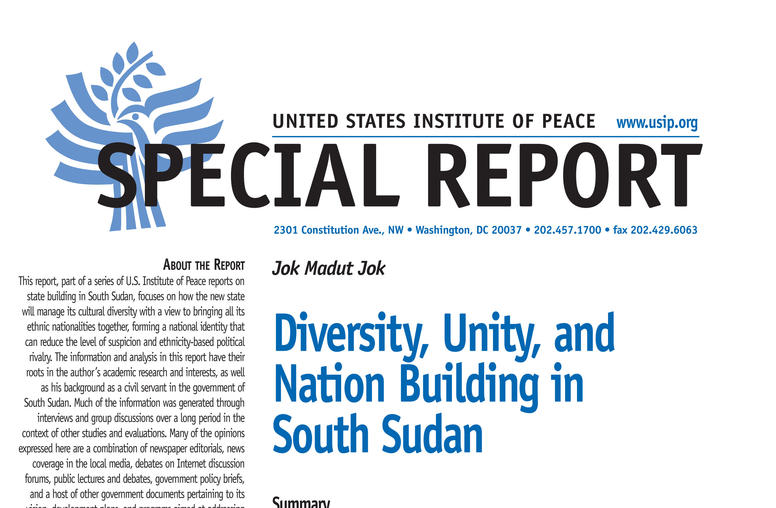Research & Analysis
U.S. Institute of Peace’s articles, reports, tools and other features provide policy analysis, research findings, and practitioner guides. These publications examine critical conflict issues at the center of the Institute’s work to prevent and resolve violent conflict.
The views expressed in these publications are those of the author(s).

Human Rights in Syria
USIP Middle East Senior Program Officer, Mona Yacoubian, testified before the Tom Lantos Human Rights Commission at the Cannon House Office Building in Washington, DC. The views expressed are those of the author and are not at the U.S. Institute of Peace, which does not take policy positions.
Haiti's Progress
Robert Maguire, chairman of the USIP Haiti Working Group and professor at the Elliott School of International Affairs at George Washington University, visited Haiti earlier this month to meet with government officials concerning Haiti’s current political impasse. He provides an update on the situation.

Afghan Civil Society and a Comprehensive Peace Process
The peace brief summarizes key findings of the field research undertaken during five trips to Kabul, Afghanistan and one trip to Pakistan between 2009 and 2011.

The Politics of Dispute Resolution and Continued Instability in Afghanistan
In this Special Report Noah Coburn analyzes findings from USIP's in-country research projects on dispute resolution in Afghanistan. The report argues that the lines between formal and informal justice systems in Afghanistan are blurred and that this has major implications for international programs engaging the informal sector, and ultimately concludes that lack of security and political stablity are the greatest challenges to dispute resolution.
Dispute Resolution and Durable Peace in Afghanistan
USIP’s Scott Worden discusses the connection between local dispute resolution work, U.S. national security objectives and a lasting peace in Afghanistan.
Helping Libya’s New Leaders Move from Euphoria to Reform
USIP’s Colette Rausch, director of USIP’s Rule of Law Center of Innovation, discusses the situation in Libya and what issues Libyans will have to address after Col. Muammar al-Qaddafi is out of power. While no two countries are exactly alike, USIP’s Rule of Law Center has been there before – helping countries like Nepal, Kosovo and Iraq as they navigated the minefield that is a transition from dictatorships to civil societies.
Senior Official to Discuss U.N. Policies at USIP
The need for collaborative, multilateral action at the United Nations and on global problems is growing, but so are the budgetary pressures on the U.S. government’s foreign affairs spending. That collision of factors provides the context for a scene-setting address at the United States Institute of Peace (USIP) by Esther Brimmer, the assistant secretary of State for International Organization Affairs.
Déjà vu: Famine and Crisis in Somalia
Somalia is currently experiencing the worst drought and famine in over half a century. Half of the population (close to four million people) is dependent on food aid, while tens of thousands are estimated to have died since the drought began this past summer.

Diversity, Unity, and Nation Building in South Sudan
South Sudan’s success as a nation depends on getting its many distinct ethnic groups to promote, teach, and celebrate a shared cultural heritage. In this new Special Report, USIP Senior Fellow and former South Sudan government official Jok Madut Jok urges concrete steps toward creating a national identity.
USIP to Examine Yemen’s Tattered Justice Sector
Yemen is seeing some of its worst violence this year with at least three subsequent days of fighting this week between divided government forces, tribal groups and unarmed pro-democracy protesters, inching the country ever closer to full-blown civil war.